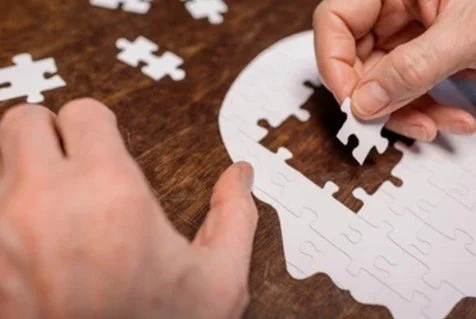Why Choosing a Certified ReCODE Practitioner Matters
Last Updated: November 2025
The ReCODE Protocol (Reversal of Cognitive Decline), developed by Dr. Dale Bredesen, is a comprehensive medical program that uses advanced diagnostics, genomics, and personalized interventions to prevent and reverse early cognitive decline. But the protocol is only as effective as the clinician applying it. Because ReCODE is complex, highly individualized, and requires deep knowledge of metabolic, inflammatory, toxic, hormonal, and genomic pathways, choosing a certified ReCODE Practitioner is essential for safe and effective care.
At HealthSpan Internal Medicine in Boulder, Colorado, our founder, Dr. Jessica Knape, MD MA, is a ReCODE 2.0 Certified Practitioner with over a decade of experience caring for patients with Alzheimer’s disease, dementia, and cognitive decline. Having worked extensively in memory care—and having seen the limitations of traditional approaches firsthand—she brings advanced training and lived experience to every patient she supports.
Here’s why working with a certified specialist matters and how it can transform your cognitive recovery journey.
Brainspan Takeaway
ReCODE is a complex, precision-medicine system that requires specialized clinical training.
A certified practitioner can properly interpret labs, genomics, toxins, hormones, and metabolic patterns.
Certification ensures safety, accuracy, and correct implementation of the protocol.
Dr. Jessica Knape is ReCODE 2.0 certified with 10 years of hands-on experience in Alzheimer’s and cognitive decline care.
Proper guidance improves outcomes and reduces risks associated with do-it-yourself or poorly guided versions of the program.
Key Points
ReCODE certification ensures mastery of the latest evidence-based techniques.
Certified clinicians understand the six Alzheimer’s subtypes and how to treat them.
Expert interpretation of IntellxxDNA genomics, metabolic labs, and toxin results is crucial.
Personalized plans require precise sequencing, timing, and monitoring.
Early detection and early intervention are more successful under certified care.
Safety oversight is essential for detoxification, hormone therapy, and chronic infection management.
Why ReCODE Requires Specialized Expertise
Most conventional care models treat Alzheimer’s and cognitive decline as uniform conditions. In reality, cognitive decline is driven by dozens of possible root causes, including:
Insulin resistance
Inflammation
Hormone depletion
Nutrient deficiencies
Environmental toxins
Genetics
Vascular issues
Sleep disorders
Gut dysbiosis
Chronic infections
Identifying and addressing these contributors requires advanced diagnostics and careful interpretation.
This is where certification matters.
A certified ReCODE Practitioner is trained to:
Perform the correct ReCODE-aligned lab testing
Interpret complex biomarker patterns
Identify the patient's Alzheimer’s subtype(s)
Integrate genomics into treatment plans
Sequence interventions in a safe, evidence-informed way
Monitor progress and adjust care precisely
Without this specialized training, patients often receive incomplete or incorrectly applied guidance—leading to poor results, frustration, or even worsening symptoms.
What ReCODE Certification Ensures
1. Mastery of the ReCODE Framework
Certified clinicians have completed extensive training that covers:
The six Alzheimer’s subtypes
The metabolic-inflammation nexus
Genetics and multi-omic analysis
Mitochondrial optimization
Detoxification science
Hormone and trophic support
Vascular and microcirculation health
Immune balance
Environmental medicine fundamentals
Certification ensures the practitioner understands not just what to do, but why and how.
2. Safety-First Expertise
ReCODE involves advanced clinical decisions such as:
Hormone replacement
Detoxification protocols
Chronic infection treatment
Genetic-based supplementation
Ketogenic or metabolic therapy
Sleep apnea intervention
Mitochondrial and neurological support
A certified practitioner is trained to apply these safely, identify red flags, and prevent complications.
3. Ability to Interpret Genomic Reports (e.g., IntellxxDNA)
Genomic interpretation is central to precision cognitive care.
Dr. Knape uses IntellxxDNA, which reveals:
Inflammation and detox genes
Methylation pathways
Vascular and lipid risk
Mitochondrial vulnerabilities
Oxidative stress risks
APOE patterns
Hormone metabolism variants
Certification ensures the clinician can translate these findings into targeted interventions that matter.
Why Work With a Certified ReCODE Practitioner in Boulder, Colorado
1. Specialized Training Meets Real-World Memory Care Experience
Dr. Jessica Knape is not only ReCODE 2.0 certified—she brings 10 years of direct experience caring for adults with Alzheimer’s and dementia. She has witnessed what happens when care is too late or too generic, and she understands the emotional, medical, and family challenges involved.
This combination of advanced training + deep experience is rare and powerful.
2. Personalized Treatment for Each Alzheimer’s Subtype
Because Alzheimer’s has multiple subtypes (inflammatory, glycotoxic, atrophic, toxic, vascular, traumatic), each requires different interventions.
Certification ensures the clinician can correctly identify and treat each subtype—or combinations of them.
3. More Accurate Diagnosis and Timely Intervention
Early cognitive changes are often subtle, and many patients are told their symptoms are “normal aging.” A certified practitioner knows how to detect early metabolic and functional changes before they become irreversible.
4. Comprehensive Monitoring and Adjustment
ReCODE is dynamic. Labs shift. Genetics illuminate new patterns. Detoxification requires careful pacing. Hormone therapy needs structured oversight.
Certified clinicians track and adjust the plan at every step.
5. Better Outcomes and Higher Success Rates
Studies from Bredesen and Toups show substantial improvement or stabilization when the protocol is applied correctly.
Certified practitioners ensure the protocol is followed as intended—maximizing the chance of success.
When to Seek Urgent Care
Seek immediate medical attention for:
Sudden confusion
Slurred speech, drooping face, or limb weakness
Severe headache or vision changes
Chest pain or difficulty breathing
These symptoms may indicate a stroke or medical emergency.
Ready to take action for your brain health?
👉 Join the 12-week Brainspan Bootcamp and start building lifelong brain resilience
Sources
Reversal of Cognitive Decline: A Novel Therapeutic Program, Bredesen DE, 2014
Precision Medicine Approach to Alzheimer’s Disease, Toups K, Bredesen DE et al., 2022
Reversal of Cognitive Decline: 100 Patients, Bredesen DE et al., 2018
Medically reviewed by
Dr. Jessica Knape, MD, MA Board Certified in Internal Medicine and Integrative and Holistic Medicine
Healthspan Internal Medicine — serving patients in Boulder, CO
Book a Discovery Call | About Dr. Knape
This content is for educational purposes and does not replace personalized medical advice.

